Ukraine War: History as a Weapon
What is the historical background to the war in Ukraine? Which mistakes has the West made? How high is the acceptance of Putin among the Russian population? In this interview, Carmen Scheide, lecturer in Eastern European history, assesses the war and how the Ukrainian nation will emerge from the war.
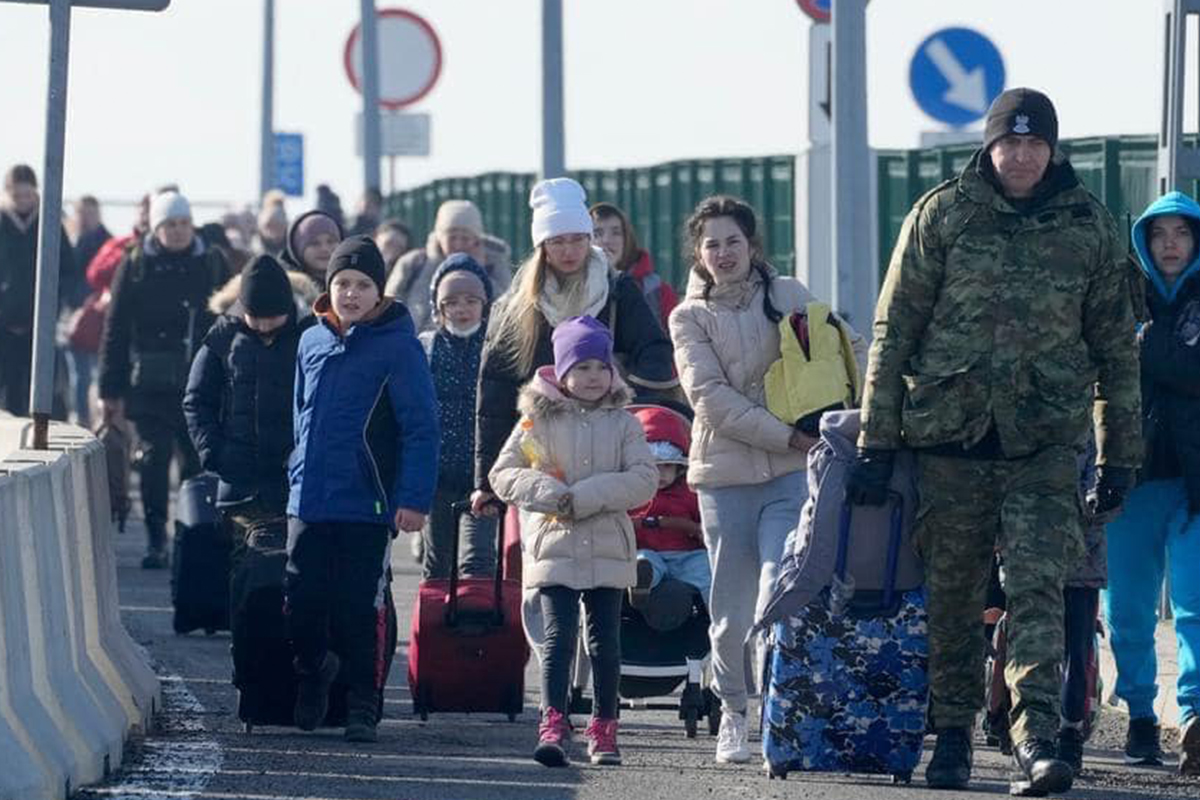
The causes are very complex and lie, roughly speaking, in the two different historical developments in Ukraine and Russia since the collapse of the Soviet Union in December 1991. Ukraine has taken a non-linear, but nonetheless a clear path towards the West, which became evident in 2014 when the Maidan riots showed a strong civil society and the demand for free, democratic elections. Ukraine has also launched enormously successful reform projects in recent years, most notably the reorganization of local self-government: power has actually been transferred from Kiev to the regions, which has democratized the country.
In Russia, things have been very different: Putin has ruled without interruption since 2000. Medvedev's short presidency from 2008 till 2012 did not change anything. Thus, Putin was able to set up structures that are rightly referred to as the “Putin system” and the “vertical of power”. Putin's view of statehood is pre-modern and focuses on safeguarding authoritarian rule. To this end, Putin works closely with the military and the secret service. He gives out privileges to create stable loyalties. This can be compared to the communist party at the end of the Soviet Union.
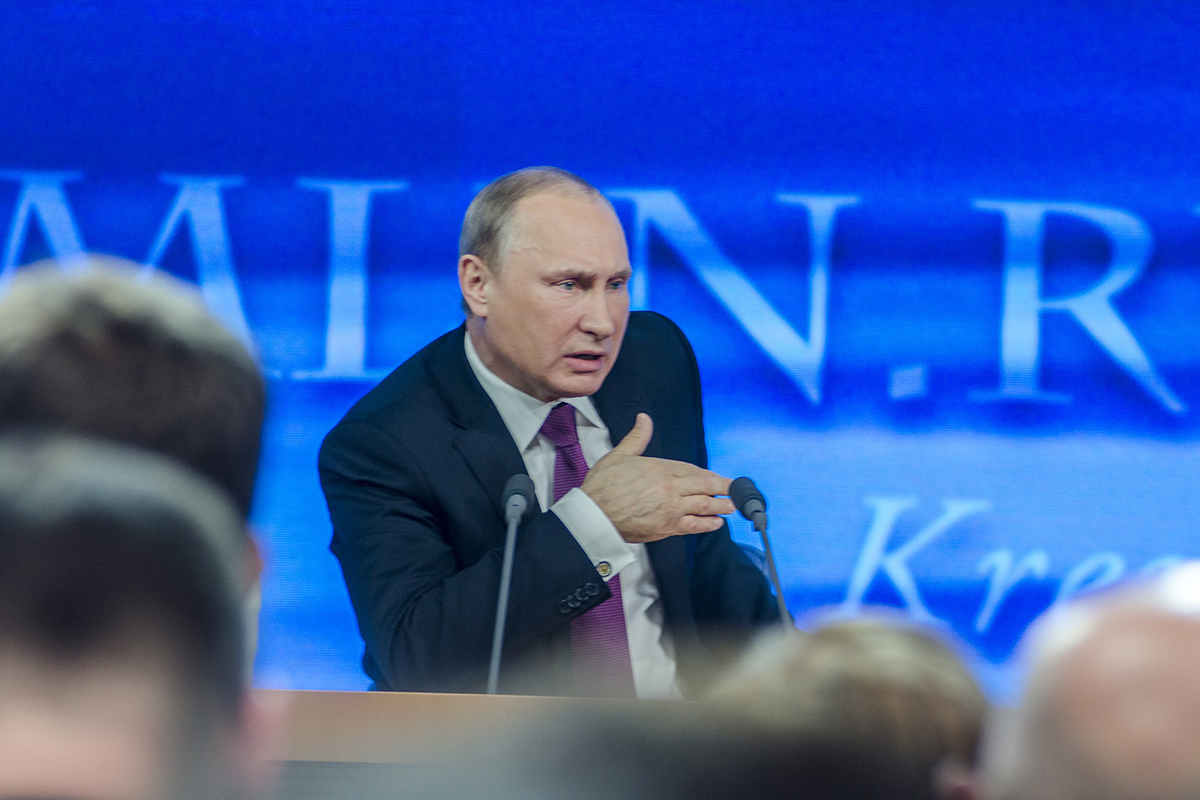
What fell by the wayside was that politics ought to take care of the people in a country and anticipate the tasks of a state. This is made obvious by a desolate welfare sector. Since at least 2004, Putin has been increasingly restricting Russian civil society, which was a reaction to what was happening in the post-Soviet space. Civil society only remains active in the social field, which even Putin utilizes because the state is so poorly positioned here. Putin has been suppressing political civil society with violence, especially since 2012 when it became clear that these presidential elections were rigged. Yet Putin is supported in his own country.
What is the significance for this war of NATO and the European efforts to establish a new security order since the collapse of the Soviet Union?There were phases of disarmament and repeated talks between NATO and Russia within the framework of the Organization on Security and Co-operation in Europe (OSCE). Today, Putin says that his security interests have never been safeguarded by NATO. This will necessitate extensive investigation: what was the role of the USA? Where could there have been opportunities for negotiating a European security framework? Putin, however, has never accepted that the free states in Eastern Europe also have a free choice of alliances.
What has gotten worse since 2004 is the permanent dialogue between NATO and Russia. Since 2007, there has hardly been any dialogue at all and in recent years it has not worked at all. That was certainly a huge mistake on all sides, particularly not thinking things through together and not cultivating discussion formats. So, the West also made mistakes that can explain this escalation. But Putin broke international law: no mistakes of the past can justify his war of aggression.
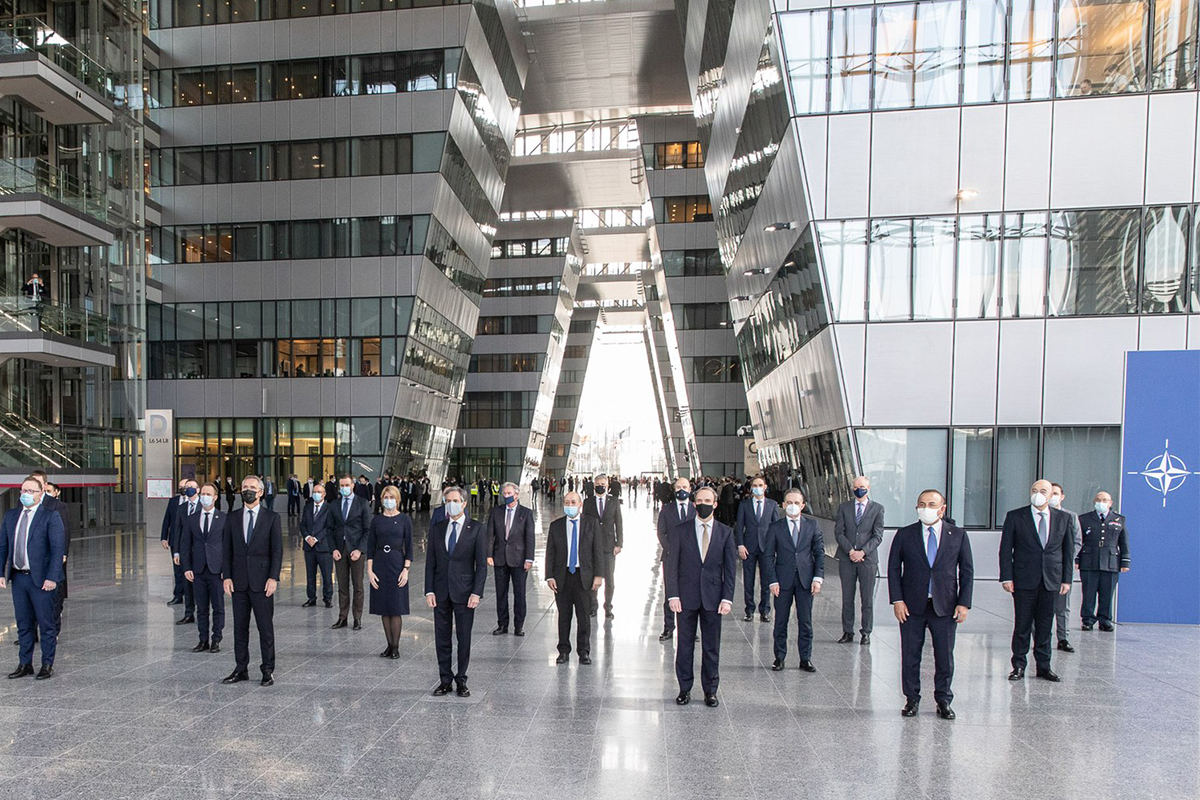
History and the worldviews associated with this conflict play a central role, in both the Ukrainian and Russian perspectives: history is used here as a weapon. In his speeches on 21 and 24 February 2022, Putin clearly stated that for him there is no Ukraine as a nation. He sees their population as part of “Little Russia,” which belongs to Russia. Putin's vision dates back to the 19th century and is an imperial vision. According to Putin, Ukraine's independence, made possible by Lenin in the early days of the Soviet Union, was a mistake. He believes it should always have been part of Russia.
A fact check is necessary here: Yes, Ukraine was not an independent state for a long time. What we know as Ukraine belonged to many different empires. For instance, there was Poland-Lithuania; parts of Ukraine also belonged to the Habsburg Monarchy, the Russian Empire and the Ottoman Empire. This was due to the social structure: Ukraine consisted of a predominantly rural population and others emerged as landed or administrative rulers.
Nevertheless, Ukraine sees itself today as a sovereign state with a long tradition that goes back to the Kievan Rus' around the year 1000 AD (Editor's note: The Kievan Rus' was an ancient East Slavic empire that today is Russia, Ukraine and Belarus). But Russia also claims the Kievan Rus' as the origin of their nation. It's a battle for the Kievan Rus', which is in effect a question of who owns history. Yet this question is part of a historical construction – history itself does not belong to anyone.
What is the position of the West in this question?In the West, the notion that Ukraine was not a state, or a nation, existed too. One could hear this in heated arguments among experts on Eastern Europe. Many said, “Ukraine always belonged to Russia, they should have it.” This view ignores the fact that already in the past the people of Ukraine have seen themselves as their own national community and that there were aspirations of statehood. These aspirations can be traced back to the Cossack communities on the Dnieper in the 17th century, who developed something of a proto-nationalism. During the 19th century, a national movement and an independent national understanding emerged.
Ukraine has been independent since 1991. A majority in the Ukrainian Soviet Republic voted in favor of independence. In international law, one cannot ignore 30 years of being an independent state. There is a separate Ukrainian language, which is not a Russian dialect, and a separate Ukrainian culture.
Which consequences of this war of aggression do you see for Ukraine?I believe Ukraine as a nation will emerge much stronger from this war. It’s incredible how they stick together. It's a sign of courage, bravery and unity that I think really amazes us all. And terrible suffering is now being done to these people. Ultimately, Ukraine will not be the military winner, but the moral winner. Yet the losses will be very severe. Territorial losses will probably also occur.
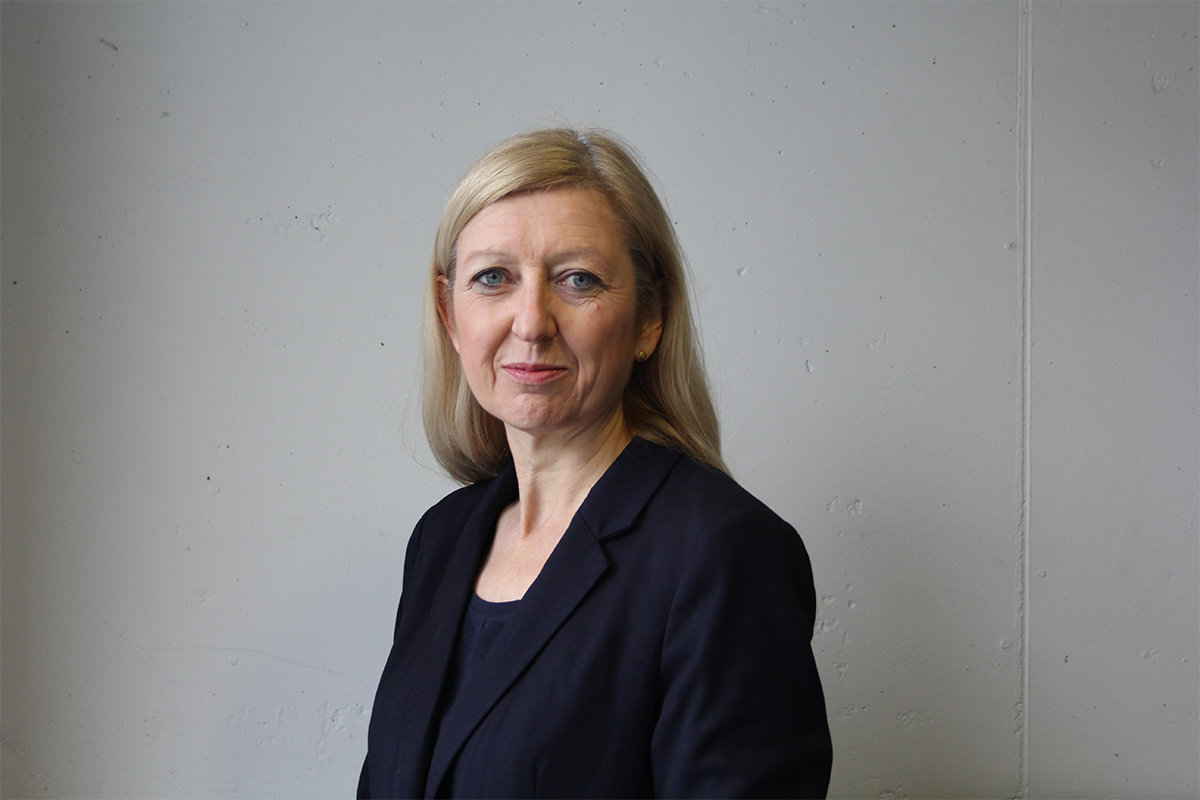
Yes. But the same must apply to Russian researchers who are coming under pressure because they are expressing their solidarity with Ukraine. One has to be very careful not to exclude Russia from everything. On the contrary: we absolutely should support liberal Russians who have to flee from arrest in Russia, for example, because they signed a petition against the war.
How high do you rate the support for Putin among the Russian population and what chances do you see that they will turn away from the propaganda and rebel against Putin?The view of the West is strongly focused on Moscow and perhaps St. Petersburg – on urban elites – where there is still a potential for liberal views and critical stances towards the war. That’s where the pictures of protesting people are from. We set an important sign by paying attention to these people. Yet we see no pictures of the vast rest of the country and its people. A majority there probably supports Putin and has little access to media other than the Russian state media. State television is still the main source of information and it has had clear language rules for many years.
Even if more Russian mothers and fathers are now asking what is happening to their sons, who were sent unknowingly to serve in the war of aggression against Ukraine and are returning as dead sons. This is a very sensitive point, which we know from mothers of soldiers from the Chechen war. But it’s not like the majority of people are likely to revolt. What is more likely is that, because of the sanctions, people’s living conditions will deteriorate so badly that there will be growing protests for social reasons.
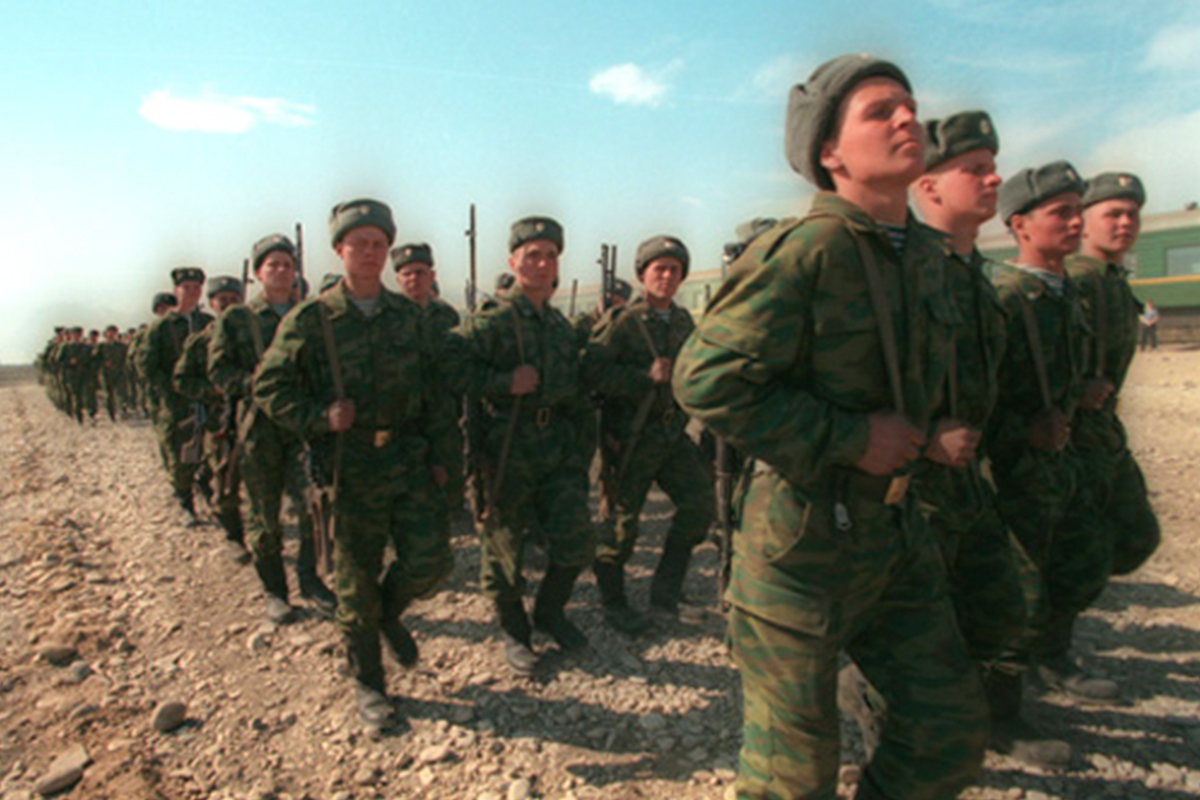
ABOUT CARMEN SCHEIDE
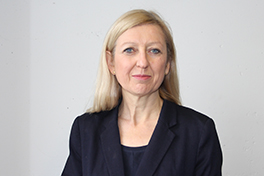
Dr Carmen Scheide is an expert on the history of Eastern Europe, in particular on the history of Ukraine, Russia and the Soviet Union.
Carmen Scheide has been a lecturer in the history of Eastern Europe at the Institute of History at the University of Bern since 2016. Previously, she worked at the Universities of St. Gallen, Basel, Konstanz and Freiburg. In one of her current research projects, Carmen Scheide looks at the "experiences of war and dealing with violence in the Ukrainian province, 1941 to the present day as a history of European integration".
Contact:
carmen.scheide@unibe.ch
Website of Carmen Scheide
UNIVERSITY OF BERN: SOLIDARITY WITH UKRAINE
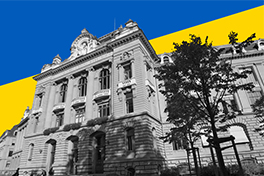
The University of Bern strongly condemns the Russian invasion of Ukraine and supports Ukrainian students and researchers. The University of Bern stands in solidarity with Ukraine and its universities. We support the statement by swissuniversities, the appeal of The Guild and statements made by its partner institutions and networks on the solidarity of all democratic states with Ukraine.
ABOUT THE AUTHOR
Nina Jacobshagen works in the marketing department at the University of Bern and is responsible for "Intercultural Knowledge".